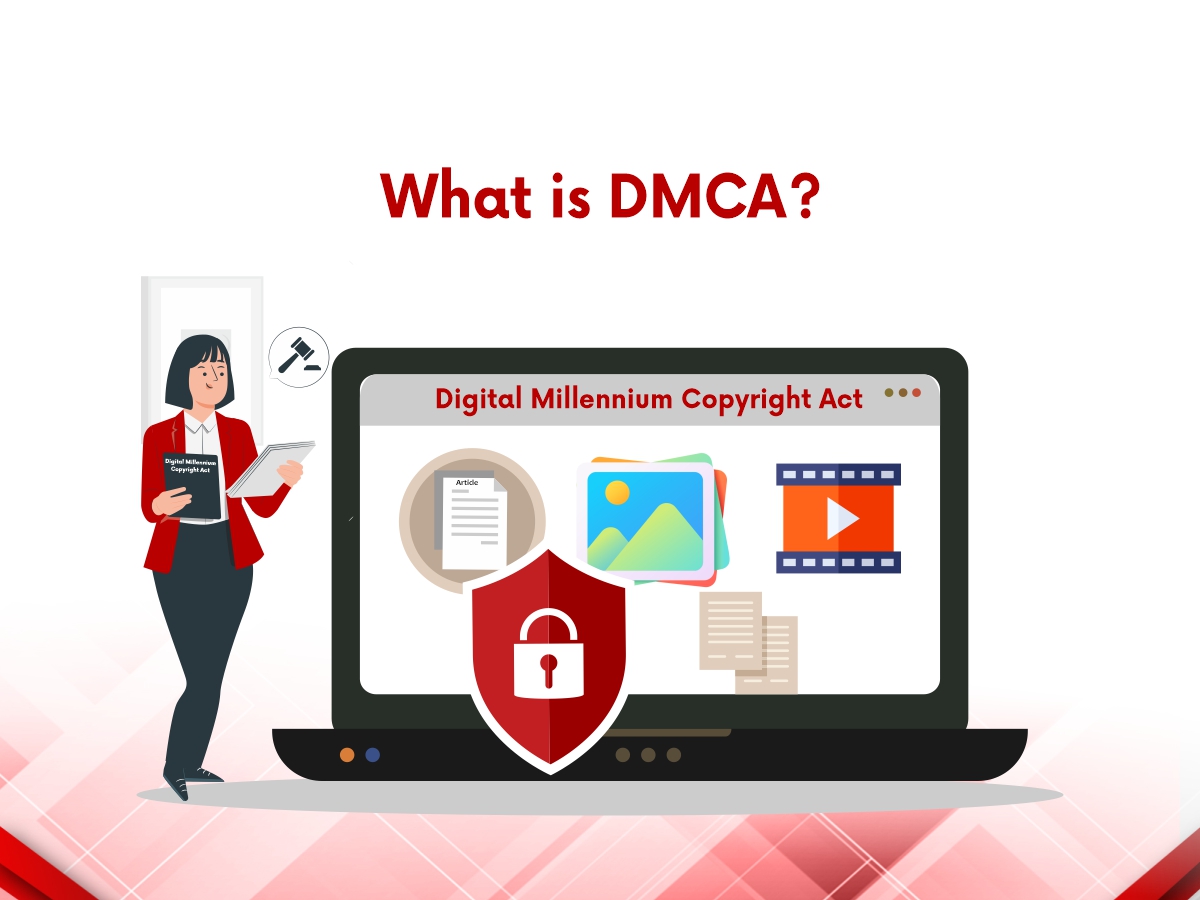
The Digital Millennium Copyright Act (DMCA) was approved in 1998. It is an American law that criminalizes the unlawful use of copyrighted materials and also secures creative works on the internet and establishes the legal framework for digital rights management. It includes articles, video, and pictures, other things. You can visit their official website https://www.dmca.com/ to know more about protection services.
The DMCA provides copyright owners with a simple method of removing their content from other websites or online platforms that do not have permission to use it. They can do this by serving a DMCA takedown notice to the ISP that host the objectionable content. ISPs are compelled by law to comply with the notice if it fits specific criteria.
One who sends a DMCA notice does not have to deal directly with the individual who stole the content. Furthermore, a DMCA notification might reduce the possibility of a lawsuit being filed. Anyone accused of copyright infringement has right to file a counter notice claiming that no infringement took place.
ISPs, such as search engines, email providers, etc., located in the United States also have benefit. They won’t face prosecution or other negative consequences for hosting the Copied and illegal content if they follow DMCA notices and take other reasonable actions to stop copyright infringement. These types of protection are known as a “safe harbor” provisions.
Safe harbour provisions can be divided into two categories. One guard’s ISPs and web hosts from infringing content posted by users. The other guards against content that contains links to infringing material.
To be eligible for this protection, an ISP’s operations must fall into one of the following categories:
The DMCA mandates that ISPs employ a DMCA agent to handle notices of copyright infringement. The contact information for the agent must be registered with the United States Copyright Office. Along with a DMCA Policy, it should be available on the ISP’s website. The policy should specify that the ISP intends to follow the DMCA standards.
Similar prohibitions apply if an ISP or other site links to but does not post anything that infringes on a copyright. The ISP cannot be aware of the infringement and cannot profit financially from it. If you are an ISP or a DMCA agent for an ISP, you must delete the offending material if you get a takedown notice. The notice must also be sent to the individual who created the content.
The individual who posted the content may respond with a counter-notice claiming that there was no infringement. Send the counter-notice to the owner of the copyright. If the owner does not file a lawsuit within 14 days, you, as the ISP, should restore the content to the website from which it was removed.
Remember that the DMCA only protects ISPs against copyright infringement charges, not trademark infringement or other intellectual property law issues. Cease-and-desist letters may be sent to ISPs in response to these issues.
If you choose to send a DMCA notice, it must contain the following information:
The DMCA basic protection plan is free and very limited in protection. It is useful for small blogger and content creator and provide 1 free takedown per year. They also provide Go Pro premium plan for both website and enforcement services.
© Copyright 2024 – Wissen Research All Rights Reserved.